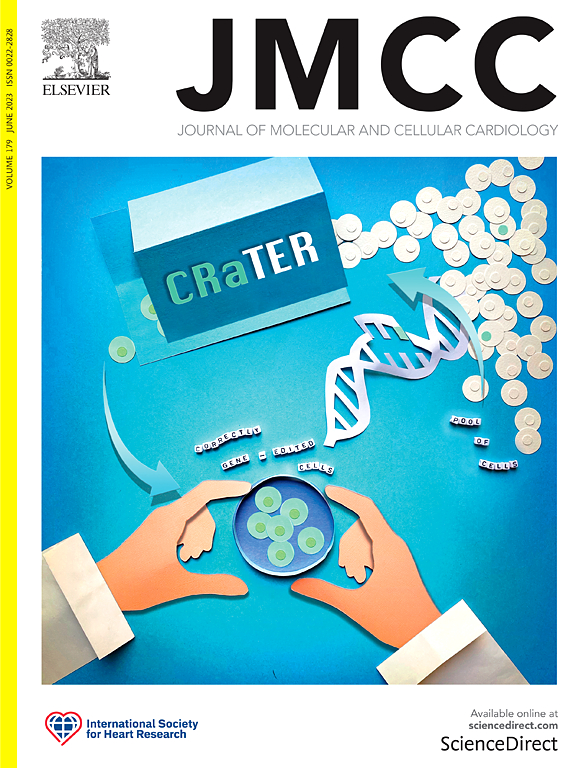Psychosocial stress amplifies inflammation through NLRP3 Inflammasome activated by endoplasmic reticulum stress in the mouse heart
IF 4.7
2区 医学
Q1 CARDIAC & CARDIOVASCULAR SYSTEMS
引用次数: 0
Abstract
Psychosocial stress (PSS) affects all humans with different intensities and is known to significantly increase inflammation and cardiovascular disease [1,2]. An amplifier of inflammation is an intracellular multiprotein complex, the inflammasome, activation of which leads to pro-inflammatory cytokines production. However, the mechanisms leading to the inflammasome activation in the heart by PSS are not well understood. Here, we identify critical upstream mechanisms leading to NLRP3 inflammasome activation via endoplasmic reticulum (ER) stress and JAK/STAT pathway. These findings reveal important mechanistic insights into possible upstream targets in controlling excessive inflammation due to PSS.

心理社会应激通过内质网应激激活NLRP3炎性体放大小鼠心脏炎症。
社会心理压力(PSS)以不同的强度影响所有人,已知可显著增加炎症和心血管疾病[1,2]。炎症的放大器是细胞内的多蛋白复合物,即炎性体,其激活导致促炎细胞因子的产生。然而,PSS导致心脏炎症小体活化的机制尚不清楚。在这里,我们通过内质网(ER)应激和JAK/STAT途径确定了导致NLRP3炎性体激活的关键上游机制。这些发现揭示了控制PSS引起的过度炎症的可能上游目标的重要机制见解。
本文章由计算机程序翻译,如有差异,请以英文原文为准。
求助全文
约1分钟内获得全文
求助全文
来源期刊
CiteScore
10.70
自引率
0.00%
发文量
171
审稿时长
42 days
期刊介绍:
The Journal of Molecular and Cellular Cardiology publishes work advancing knowledge of the mechanisms responsible for both normal and diseased cardiovascular function. To this end papers are published in all relevant areas. These include (but are not limited to): structural biology; genetics; proteomics; morphology; stem cells; molecular biology; metabolism; biophysics; bioengineering; computational modeling and systems analysis; electrophysiology; pharmacology and physiology. Papers are encouraged with both basic and translational approaches. The journal is directed not only to basic scientists but also to clinical cardiologists who wish to follow the rapidly advancing frontiers of basic knowledge of the heart and circulation.

 求助内容:
求助内容: 应助结果提醒方式:
应助结果提醒方式:


